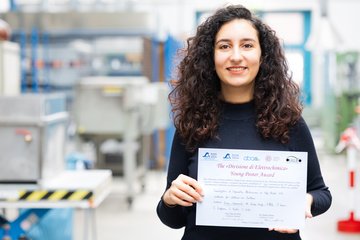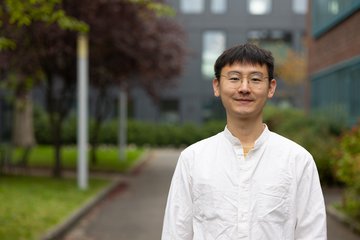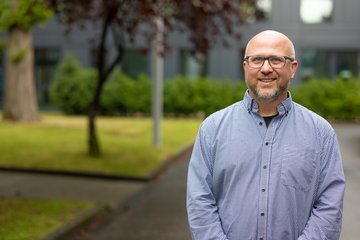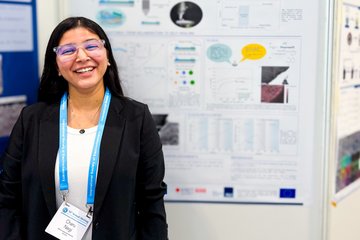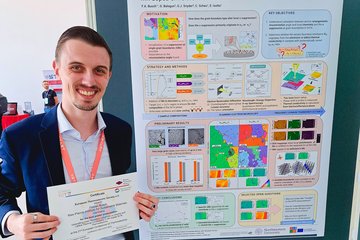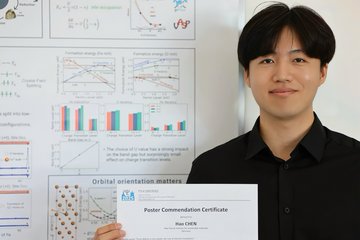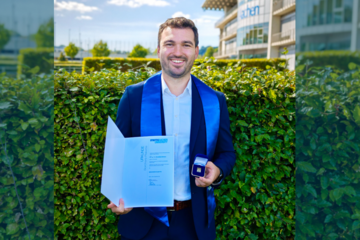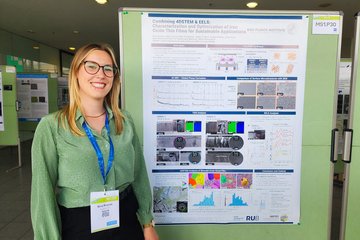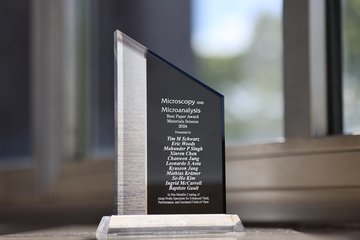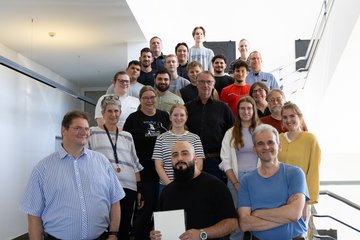All genres
1.
Journal Article
Monitoring of anaerobic microbially influenced corrosion via electrochemical frequency modulation. Electrochimica Acta 105, pp. 239 - 247 (2013)
2.
Journal Article
Accelerated cathodic reaction in microbial corrosion of iron due to direct electron uptake by sulfate-reducing bacteria. Corrosion Science 66, pp. 88 - 96 (2013)
3.
Journal Article
Marine sulfate-reducing bacteria cause serious corrosion of iron under electroconductive biogenic mineral crust. Environmental Microbiology 14 (7), pp. 1772 - 1787 (2012)
4.
Talk
Die elektrisch mikrobiell beeinflusste Korrosion von Eisen durch sulfatreduzierende Bakterien. Beiratssitzung der Dechema/GfKORR-Fachgruppe "Mikrobielle Materialzerstörung und Materialschutz", Frankfurt am Main, Germany (2014)
5.
Talk
Monitoring anerobic microbially influenced corrosion with electrochemical frequency modulation. Reservoir Microbiology Forum, London, UK (2013)
6.
Talk
Monitoring anerobic microbially influenced corrosion with electrochemical frequency modulation. 12th Topical Meeting of the International Society of Electrochemistry & XXII International Symposium on Bioelectrochemistry and Bioenergetics of the Bioelectrochemical Society, Bochum, Germany (2013)
7.
Talk
Anaerobic Microbial Influenced Corrosion. EUROCORR 2012, Istanbul, Turkey (2012)
8.
Talk
A new model for microbiologically influenced corrosion. The European Corrosion Congress Eurocorr 2010, Moscow, Russia (2010)
9.
Talk
Microbial corrosion induced by a new highly aggressive SRB strain. 59th Annual Meeting of the International Society of Electrochemistry, Sevilla, Spain (2008)
10.
Poster
Monitoring of anerobic microbially influenced corrosion via electrochemical frequency modulation. NACE Corrosion Conference 2014, San Antonio, TX, USA (2014)
11.
Poster
Elektrochemisches Monitoring der mikrobiell beeinflussten Korrosion. GfKORR-Jahrestagung 'Untersucht, geprüft und dann... Lässt sich Korrosion vorhersagen?', Frankfurt, Germany (2013)
12.
Poster
Anaerobic Microbial Influenced Corrosion. 63rd Annual Meeting of the International Meeting of the International Society of Electrochemistry, Prague, Czech Republic (2012)
13.
Poster
Resistometry measurements to monitor abiotic and biogenic sulfide corrosion of iron. Engineering of Functional Interfaces EnFI 2010, Marburg, Germany (2010)
14.
Poster
Microbial corrosion induced by a highly aggressive SRB strain. 2nd International IMPRS-SurMat Workshop on Surface and Interface Engineering in Advanced Materials, Bochum, Germany (2008)
15.
Thesis - PhD
Die elektrisch mikrobiell beeinflusste Korrosion von Eisen durch sulfatreduzierte Bakterien. Dissertation, Fakultät für Maschinenbau der Ruhr-Universität, Bochum, Germany (2012)
